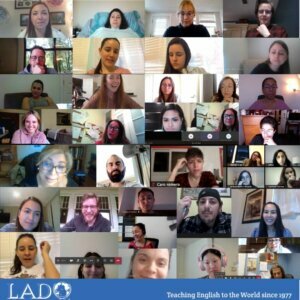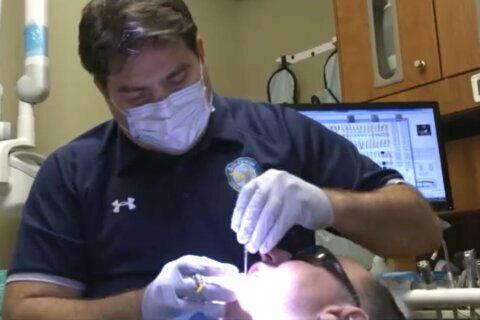This content is sponsored by EagleBank.
With fewer people traveling to the United States during the coronavirus pandemic, there haven’t been as many students requiring the services of LADO International Institute, a business in the D.C. area that teaches English as a foreign language.
“Almost 50% of our students – we lost them, I want to say overnight,” said academic director Margaret Lado Schepis.
All three of LADO’s education facilities in D.C., Maryland and Virginia had to close their doors.
But, in an effort to get back to business, LADO shifted its model away from how it used to be when teachers relied heavily on person-to-person learning to communicate their lessons to students.
“We’re focused on a greater and more robust online program,” said Lado Schepis. “That’s one of the solutions we’ve had.”

Teachers have been hosting classes using Microsoft Teams, a video conferencing tool that is similar to Zoom.
Classes have been limited to 12 students to allow for some one-on-one time between teachers and students and to prevent educators from getting overwhelmed by their new system.
To help attract more students, LADO decided to slash tuition by 50%.
“We are kind of excited,” said Lado Schepis. “It’s going just really well.”
It is not clear when LADO will return to its physical classrooms, as the rooms are small and Lado Schepis said it would be difficult to practice social distancing.
Additionally, some of the teachers are in the high-risk categories for the coronavirus so they have reservations about going back in and being around groups of people.
In the meantime, the online program is getting more popular as teachers learn new skills and students decide to make the switch to the virtual classroom.
“The better the platform and the more options you have and the better you train your students and staff, there’s a lot that can go on,” said Lado Schepis.







